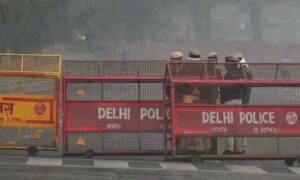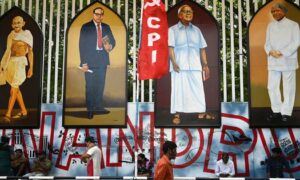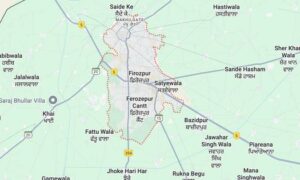
The Supreme Court on Monday declined to impose year-round restrictions on activities prohibited under the Graded Response Action Plan, or GRAP, such as blanket construction bans or curbs on vehicular movement, reported PTI.
A bench headed by Chief Justice BR Gavai stated that the national capital “cannot be brought to a standstill” in the name of fighting air pollution.
GRAP is a set of incremental anti-pollution measures that are activated to prevent further worsening of air quality once it reaches a certain threshold in Delhi and the adjoining areas comprising the National Capital region.
The city has recorded air quality in the “poor” or worse categories since mid-October, leading to the imposition of Stage 3 restrictions under GRAP on November 11.
Restrictions under Stage 3 entail a ban on non-essential construction work and the closure of stone crushers and mining activities, in addition to the measures already imposed under Stage 1 and Stage 2.
They also include the shifting of primary school up to Class 5 to hybrid mode. Parents and students have the option to choose between offline and online classes wherever available.
On Monday, the bench said that the court cannot order measures that would paralyse the economic activity or deprive hundreds of thousands of migrant workers of wages, even as air quality is expected to worsen in the coming days, the Hindustan Times reported.
“We cannot bring everything to a standstill,” the newspaper quoted Gavai as saying. “There cannot be a complete stoppage of all activities.”
“We also have to think of migrants from Bihar and Uttar Pradesh who are here to work and are daily wagers,” the bench, also comprising Justices K Vinod Chandran and NV Anjaria, was quoted as saying. “The solution proposed cannot be worse than the problem.”
The bench was responding to submissions by advocate Gopal Sankaranarayanan that Delhi had turned into a “gas chamber” and that the situation required “drastic steps” such as shutting down all activities covered even under GRAP-1 for the entire year, the Hindustan Times reported.
GRAP-1 restrictions focus on controlling dust and vehicle emissions, including a ban on diesel vehicles older than 10 years and petrol vehicles older than 15 years, tightening of traffic rules at major intersections, ban on burning of garbage, leaves and biomass among others.
The bench observed that such extreme steps are neither contemplated under the regulatory framework nor constitutionally manageable.
Air quality deteriorates sharply in the winter months in Delhi, which is often ranked the world’s most polluted capital. As the temperature falls, a layer of cold air forms close to the ground and traps pollution instead of letting it rise and disperse.
Stubble burning in Punjab and Haryana, along with the lighting of firecrackers, vehicular pollution, falling temperatures, decreased wind speeds and emissions from industries and coal-fired plants contribute to the problem.
Delhi has already reported three “severe” air quality days and 10 “very poor” days in the first half of November. Minimum temperatures fell sharply, touching 9°C on Sunday, the lowest for November since 2022.
An AQI in the “very poor” or “severe” range is considered hazardous and can pose risks even to healthy individuals.
On Monday, the Supreme Court also asked the Punjab and Haryana governments to strictly follow the directions of the Commission for Air Quality Management on stubble burning, PTI reported.
“If [the commission’s] suggestions to Punjab and Haryana are implemented, then stubble burning can be adequately tackled,” PTI quoted the bench as saying. “We direct both states to have a combined meeting and ensure that t[the commission’s] suggestions are scrupulously implemented.”
Also read: Why air quality numbers in Delhi vary widely
📰 Crime Today News is proudly sponsored by DRYFRUIT & CO – A Brand by eFabby Global LLC
Design & Developed by Yes Mom Hosting






